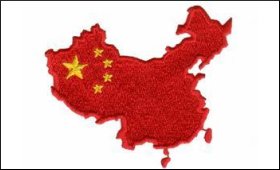|
|
|

|
China is using commerce to conquer Gilgit-Baltistan
|
|

|
|
| Top Stories |
 |
|
|
|
DR AMJAD AYUB MIRZA (Source: IANS) | 11 Sep, 2022
The Great-Game as we know it today began around early 1800s when in 1801
Russian Tsar Paul I sent Napoleon Bonaparte a secret letter proposing a
joint invasion of British India. Considering the expedition too
ambitious, Napoleon turned down the offer. However, Russian attempts to
conquer India did not end there.
Due to the strategic
location of both Iran and Afghanistan as the gateway to British India,
they were dragged into the Great-Game.
In 1801, Russia annexed
the Kingdom of Georgia and the Persians saw it as a direct invasion of
their regional sphere of influence in Central Asia.
Three years
later, Russia continued with its imperial expansion and laid siege to
Yerevan (the capital of Armenia). This military maneuver drew Iran into
an alliance with the British.
Fast forward to 1979 when troops of
the former Soviet Union entered Kabul to protect the communist
government which was faced with an insurgency supported by the US,
British and their western allies as well as China.
For the next
10 years, Pakistan became the frontline state among the contending
players of the Great-Game. Finally, in 1989 the Soviet troops were
forced to withdraw ushering a period of civil war and uncertainty that
continues to this day.
Flashback to the 1800s when Russia began
to build trading posts all across Central Asia as a means of using
commerce to conquer the independent kingdoms of Central Asia.
Edward
Law, 1st Earl of Ellenborough, served as a member of the British
Cabinet and was appointed president of the Board of Control for India in
1828 and later as governor general of India between 1842 and 1844. He
observed the Russian expansion toward India very closely and reported
that Russia was using commerce as a means to conquer central Asian
republics by setting up trading posts.
Today, the
China-Pakistan-Economic-Corridor (CPEC) which is part of a greater
China's Belt and Road Initiative should be seen as a vial economic
expansionist program initiated to conquer a key geographical location on
the cusp of Central Asia, India and China namely Pakistan occupied
Gilgit-Baltistan (PoGB).
Sold to the people of PoGB as a landmark
project to uplift the lives and infrastructure of the poverty stricken
people of PoGB CPEC has in fact deepened their colonial subjugation.
Considering China's ambition to extend CPEC right down to the deep sea
port of Gwadar in Balochistan, the project is in actuality an illegal
economic encroachment on a territory that is part of Jammu Kashmir and
therefore of India.
Thirty-seven special economic zones (SEZs)
are to be established along the route of CPEC in Pakistan. Nine are to
be established on priority basis in all the provinces including PoGB.
Moqpondass
Special Economic Zone is one such SEZ being built in PoGB. The other is
being built in my city and is called Mirpur Industrial Zone. These
economic zones are to be linked together right up to the port of Gwadar.
Moqpondass
SEZ borders with Afghanistan to the North, China to the Northeast and
PoJK to the South. No wonder PoGB is referred to as "the life line of
CPEC".
Moqpondass is rich in precious stones and all the mining
contracts in the region are already being pouched by China or their
sponsored private contractors. This has caused displacement of thousands
of residents and resulted in wave after wave of protests in PoGB.
As
promised earlier Gilgit-Baltistan has not been made a stake holder in
CPEC. The 1.8 million jobs promised to be generated by CPEC for PoGB
never materialised and China sent thousands of its own workers instead
to work on CPEC projects in the region.
As the Great-Game enters a
new era with Chinese imperialist expansion and India taking her place
as world's fifth largest economy the old strategy of using commerce to
conquer has come alive again.
Manoj Gupta, group editor of
security affairs at CNN-News 18 reported on June 15, 2022, that China
has asked Pakistan for permission to setup military outposts in
Balochistan for CPEC security.
Soon we might witness Chinese
military outposts in Gilgit-Baltistan in the name of providing security
to Chinese personal working on CPEC projects.
How the new
players in the Great-Game will manifest their manoeuvres only time can
tell but till then PoGB seems to have become the first fatality of
Chinese policy of using commerce to conquer.
(The author is an author and a human rights activist from Mirpur in PoJK. He currently lives in exile in the UK)
|
|
|
| |
|
|
|
|
|
|
|
|
|
|
|
|
|
|
| |
| Customs Exchange Rates |
| Currency |
Import |
Export |
US Dollar
|
₹91.35
|
89.65 |
UK Pound
|
₹125.3
|
₹121.3 |
Euro
|
₹108.5
|
₹104.85 |
| Japanese
Yen |
₹58.65 |
₹56.8 |
| As on 19 Feb, 2026 |
|
|
| Daily Poll |
 |
 |
| What is your primary "Make or Break" expectation from the Finance Minister this year? |
|
|
|
|
|
| Commented Stories |
 |
|
|
|
|
|
| |
|